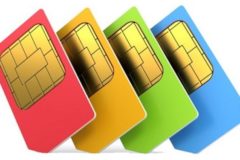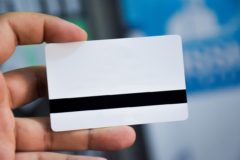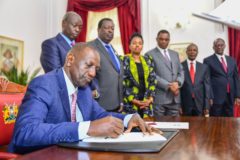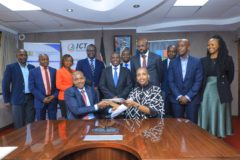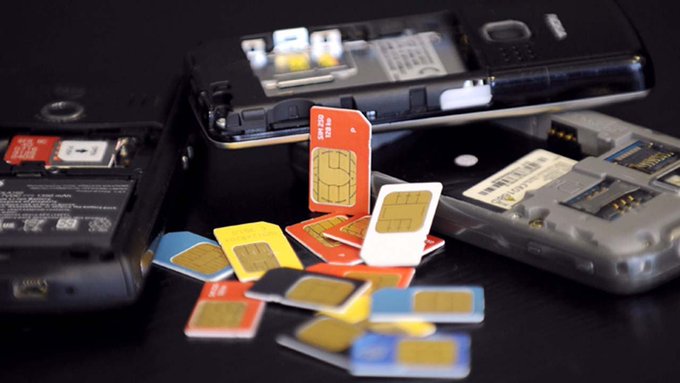
The Nigerian Communication Commission (NCC)’s new order to suspend mobile numbers of people without a National Identity Number (NIN) before the new year has pissed off a lot of Nigerians.
On Tuesday the 15th of December, the NCC released a statement ordering the suspension of the registration of new SIM cards by all Mobile Network Operators (MNOs) in the country.
They also gave a new ruling that requires mobile network subscribers to provide National Identification Number (NIN) to update SIM registration records before December 30th.
According to the announcement, all SIMs without NIN will be blocked and any network operators who do not comply could lose their licenses.
With a population of over 200 million people, Nigeria has an estimated 198 million active mobile lines and as of May 2020, only 41.5 million of this number have registered for identity cards, and that’s not up to a quarter of the country’s population.
Earlier this year, the National Identity Management Commission (NIMC), an organisation set up to operate the national identity database in Nigeria, confirmed that only 38% of Nigerians have any form of identification.
This means a lot of Nigerians are still not recognised by the NIMC. This is a thing of concern that does not exonerate the commission from criticism.
SIM registration in Nigeria began in April 2010 after the NCC ordered mobile network subscribers to provide personal information and submit biometric scans in order to register their SIM cards.
Although it has continued over the years, this sudden regulation, according to NCC, is until the completion of an assessment of users to comply with proper data regulations.
However, the new NCC order is not the first of its kind.
In January 2020, they imposed a regulation requiring users to complete digital identification procedures with the NIMC and provide the details to their mobile network provider but this is the first time an ultimatum will be given, followed by threats.
While the NCC’s stated that this time, the need to acquire NIN is an “urgent drastic measure that has now become inevitable to improve the integrity and transparency of the SIM registration process,” it begs the question – why now? What is the existing process to getting a national identity number and what exactly is wrong with it?
Since it was launched in 2007, NIMC has continuously had trouble issuing ID cards to Nigerians. In some situations, it’s taken up to four years to issue national ID cards to people who’ve registered.
This delay is typical of any Nigerian situation, especially coming from a government institution. It explains why a lot of Nigerians do not have their NINs.
For each person who registers for an ID card, a unique NIN is given. This number is also tied to the Nigerian passport. The government also attempted to make it a compulsory requirement for students writing the Unified Tertiary Matriculation Examination (UTME), a standardized assessment test for prospective Nigerian undergraduates so this number is a big deal but before one can get it, it takes a toll on you.
A fight to go digital
In August 2020, the government mentioned that the focus of the NIMC had shifted from the production of plastic national identity cards to digital cards. Here, the identity of registered persons will be attached to their database and can be accessed wherever they are.
As relieving as this sounds, it still does not take away the tormenting process of registration where people go to NIMC centers to have their information manually imputed on a computer.
This process is time-consuming. The NIMC is said to be working on a mobile app that when launched, will reportedly make it possible for citizens to link their SIM to their NINs by themselves.
However, one wonders, how is this going to play out with millions of registered mobile users without NIN? And why is the NIN required when most Nigerians already own other means of identification – Bank verification number (BVN), drivers’ license, and international passport -?
What’s there to lose?
While Mobile Network Operators have agreed to the directive, subscribers and retail communication outlets might be at the receiving end of this intended change.
Also, as a regulator, the NCC has chosen to put themselves up for public criticism by threatening to block millions of mobile users from having access to the internet. Although they have agreed to this, network providers will suffer financial loss and the commission will lose in tax returns.
On the other hand, any mobile user who wishes to retrieve their national identity number via their mobile phone can do this with a unique USSD code, *346# which when dialled, attracts a ₦20 charge.
Could this also be a simple means for the government to get quick cash from people or just a deliberate tactic to force Nigerians to get the NIN, as a ruse for “improving SIM registration transparency”?
Whatever it is, Nigerians don’t like it.











